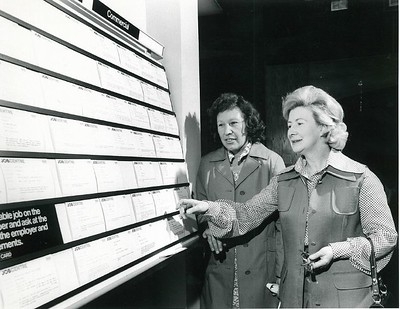The Government has corrected its initial guidance on underpaid State Pensions after a number of errors were spotted.
The changes could affect divorced people and also people over 80 who were not claiming a State Pension when they died.
The corrections are likely to mean fewer people will be able to claim.
Over the past year a number of past errors on calculating State Pensions have been highlighted by former Pensions Minister and LCP partner Steve Webb, a BBC investigation, the National Audit Office and others.
Last year a damning report from the National Audit Office revealed that 134,000 state pensioners were underpaid by an average of £8,900 each - with some underpayments dating back to 1985.
Some 44,000 of those hit by the error are believed to have died before learning of the issue, with some underpaid by up to £128,000. About 94,000 were believed to be still alive as of September 2021.
In total, an estimated £1bn of state pension payments due was not paid out, according to the National Audit Office report.
About 1 in 8 arrears payments is for £40,000 and an estimated 9 in 10 victims could be women.
Earlier this year the government set up a number of tools and and a website to help families claim back any State Pension underpayments. Many thousands of families are already believed to have submitted claim, often for deceased family members who may have been underpaid.
However, the Government yesterday issued new guidance for the next of kin or executors for someone who has died and who may have been underpaid State Pension.
The initial guidance gave the impression that divorced people and all people over 80 could submit a claim but the Government has now said that divorced people may not be eligible and those who died without having claimed the State Pension may also be excluded.
The Government’s new guidance says: “The guidance had said that people who were divorced when they died may be affected. This is not correct, they must have been married or widowed when they died.
“The guidance had (also) said that people aged over 80 who did not get any State Pension when they died may be affected. This is incorrect because they must have been getting some State Pension.”
Steve Webb, partner at LCP, said: “This is all pretty embarrassing. The basic idea of the site is a very good one – if your loved one has died and was underpaid state pension you can register your details and they will check and pay out any underpayments to heirs and so on. The problem is that they got wrong who might be entitled.
“The key point is that there’s only an error to fix where (now deceased) people claimed their state pension but were paid the wrong amount. You could not get any money posthumously if your late loved one got divorced and failed to tell DWP, and if they had told DWP they could have got their State Pension potentially increased, but if they didn’t do so while they were alive then there’s no entitlement and nothing for the heirs to claim.
“It also means that if your late loved one turned 80 having never claimed a pension and if they had claimed they could have got a (non-contributory) state pension. But if they didn’t claim - then they weren’t entitled so there is nothing for heirs.
He added: “I think DWP have realised that families have started putting in claims in the above two situations based on what was on the website, and this is raising false hopes.”

